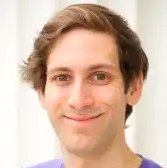See Mek present at this year’s Aaron Swartz Day 2024 Podcast: When it Rains at the Archive, Build an Ark –
Book bans, Lawsuits, & Breaches
 Libraries are amazing, sacred places.
Libraries are amazing, sacred places.
As OpenLibrary.org celebrates its 15th year of progress, the world has also become an increasingly challenging place for libraries: law suits, locked hardware, book bans, and eLicensing pose existential risks to the survival of our library system. Learn why, six years after joining the Internet Archive, I still work on OpenLibrary.org and see what opportunities we have to defend the future of US libraries.
About Mek:
Mek (@mekarpeles) loves libraries and runs OpenLibrary.org with a vibrant open source community at the non-profit Internet Archive. There, he serves in the memory of Open Library’s founder and his hero, Aaron Swartz, to help make millions of books freely accessible to read or borrow. Before joining the Archive, Mek co-founded two small startups, helped lead engineering for two YC companies, and was a regular at the Noisebridge hackerspace. In his free time, when rock climbing gyms are closed, Mek helps facilitate Archive Labs, an autonomous, volunteer-run incubator which promotes for open access and public good, is a steering member of the Open Book Genome Project, mentors non-profits at
ffwd.org, and prototypes open source knowledge maps and tools for thought. You can help him feed San Francisco’s hungry at peanutsforgood.org and follow his life progress at mek.fyi.
Related Talks:
- “Learning Maps: Navigating Books Without Borders” from Aaron Swartz Day, November 13th, 2021.
- Reading Between the Lines: How Community & Tech are helping the Internet Archive capture the essence of a Book’s Genome
Below description goes with: HOWTO: Building a Library in the Matrix (Aaron Swartz Day 2020).
When the first Carnegie library‘s doors opened in 1889, thousands marveled at the notion of humanity’s greatest parcels of knowledge becoming within walking distance. More than a century later, we’ve grown accustomed to Wikipedia at our fingertips. The promise of the Internet has ushered exciting opportunities to link and unite disparate resources, to facilitate instant and international collaboration, to overcome physical barriers, reduce friction, and equitably streamline access, and to enable diverse audiences with vastly different needs.
One hundred years later, and one principle remains constant: the importance of the Library model, as an empowering equalizer and a foundation for cultivating a flourishing, informed, and thoughtful society. A century from now, no doubt “information at our fingertips” will seem as antiquated and laborious as a visit to the post office. We may soon grow to expect information at the speed of thought — or (with the assistance of predictive artificial intelligence) perhaps even faster. We may soon be able to zip nuggets of tailored knowledge to each other’s minds at a whim for their consideration. And in consideration, the recipients would seamlessly assimilate this knowledge into their own environment and context, experiencing it according to their own chosen preferences which work best for them — not necessarily the sender’s. How will a library work in this future Matrix? How might libraries flourish or perish in an age of decentralization, federation, and linked data?
In the words of Wayne Gretzky: “Skate to where the puck is going, not where it has been.”
If the future we believe in continues to hold libraries sacred, we are obligated to dream and ask, as many like Vannevar Bush and Brewster Kahle have: what comes after the Carnegie Formula? Let us dare to dream of a Born Digital Library: a formula in which we may all be empowered to participate together for the benefit of society.